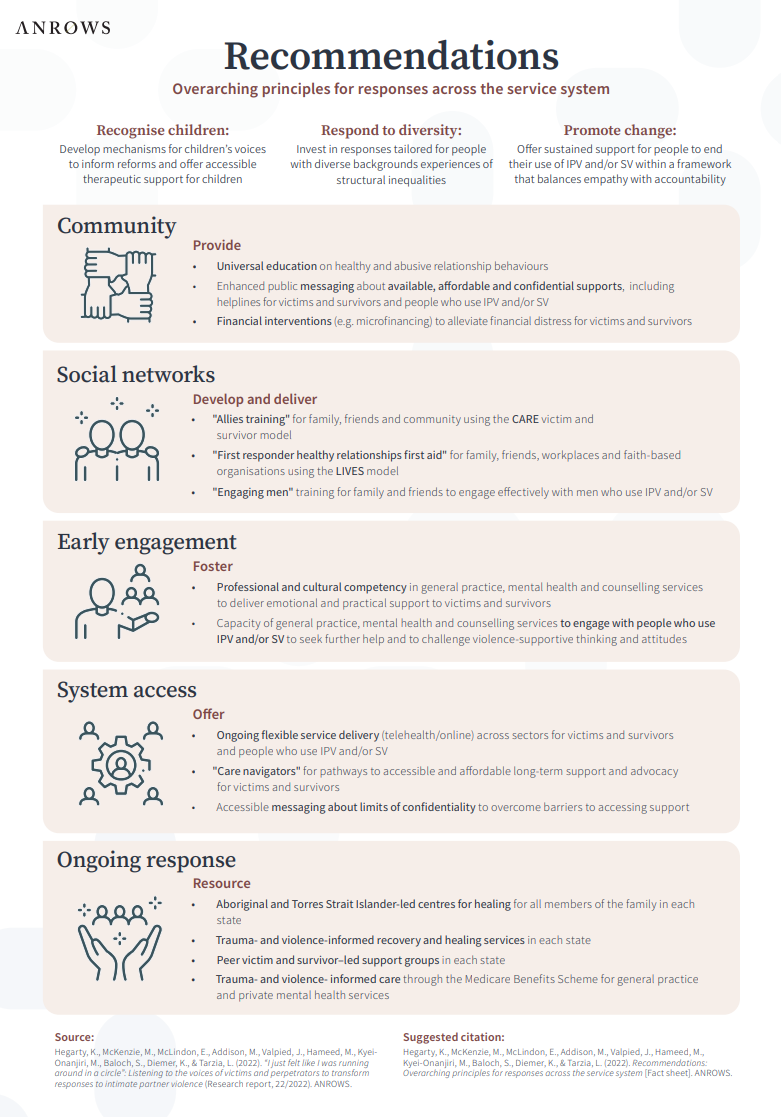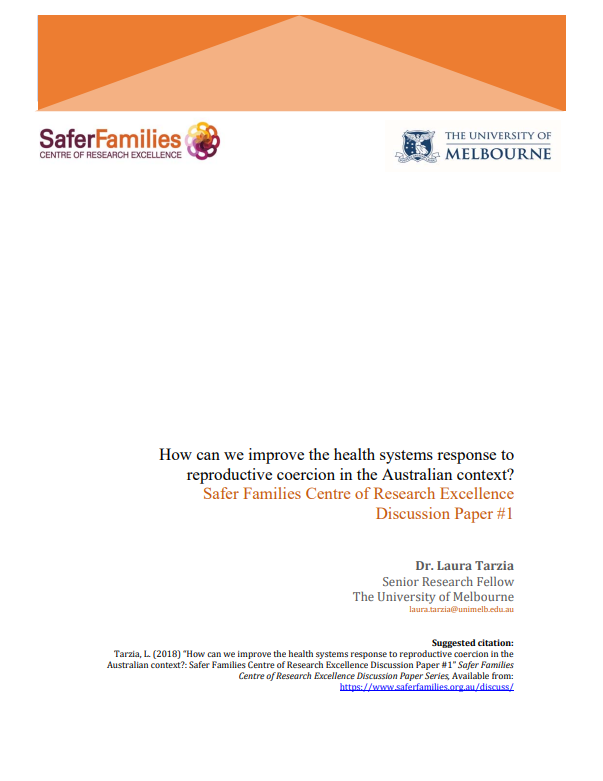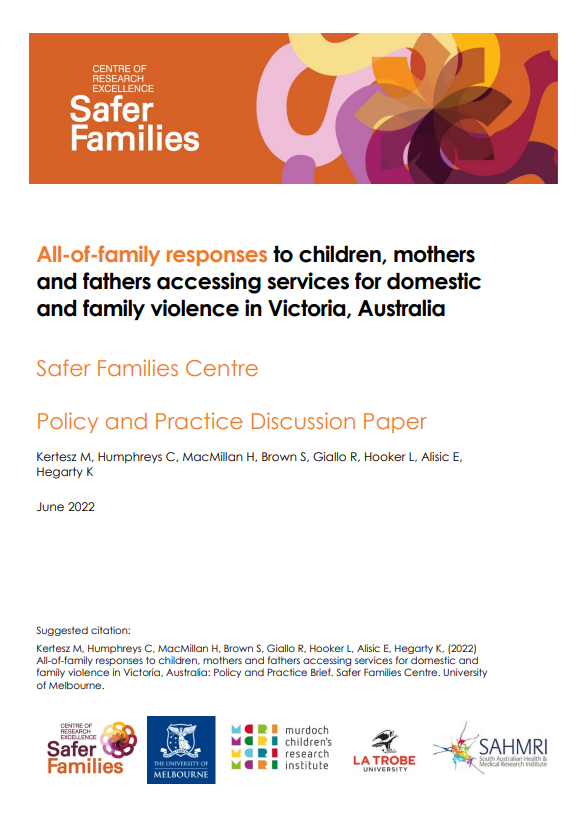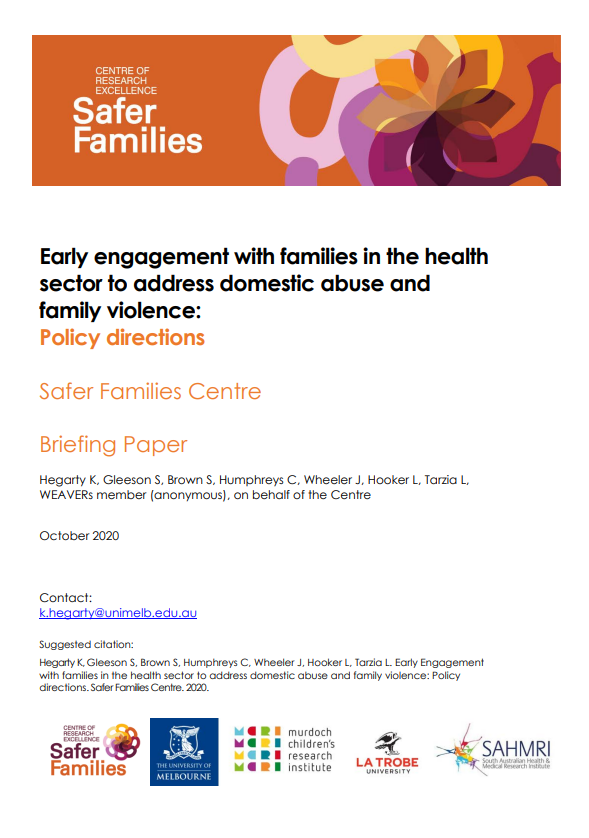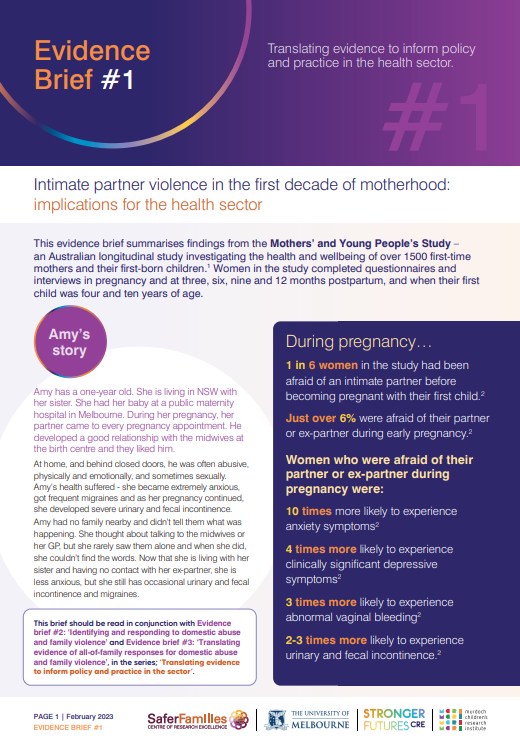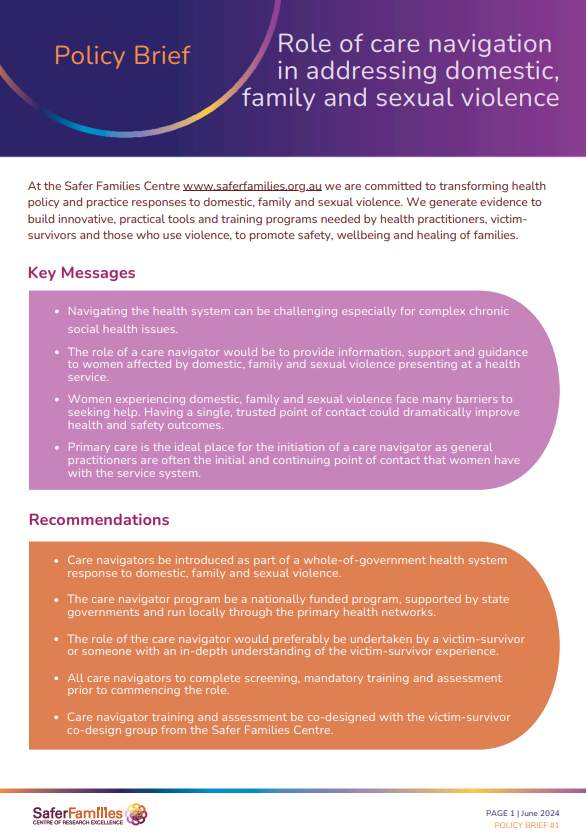For Policy Makers

These evidence briefings and discussion papers are ‘Translating evidence to inform policy and practice in the health sector’ evidence brief series.
Featured
Identifying and responding to domestic abuse and family violence: Implications for the health sector
It all begins with an idea.



